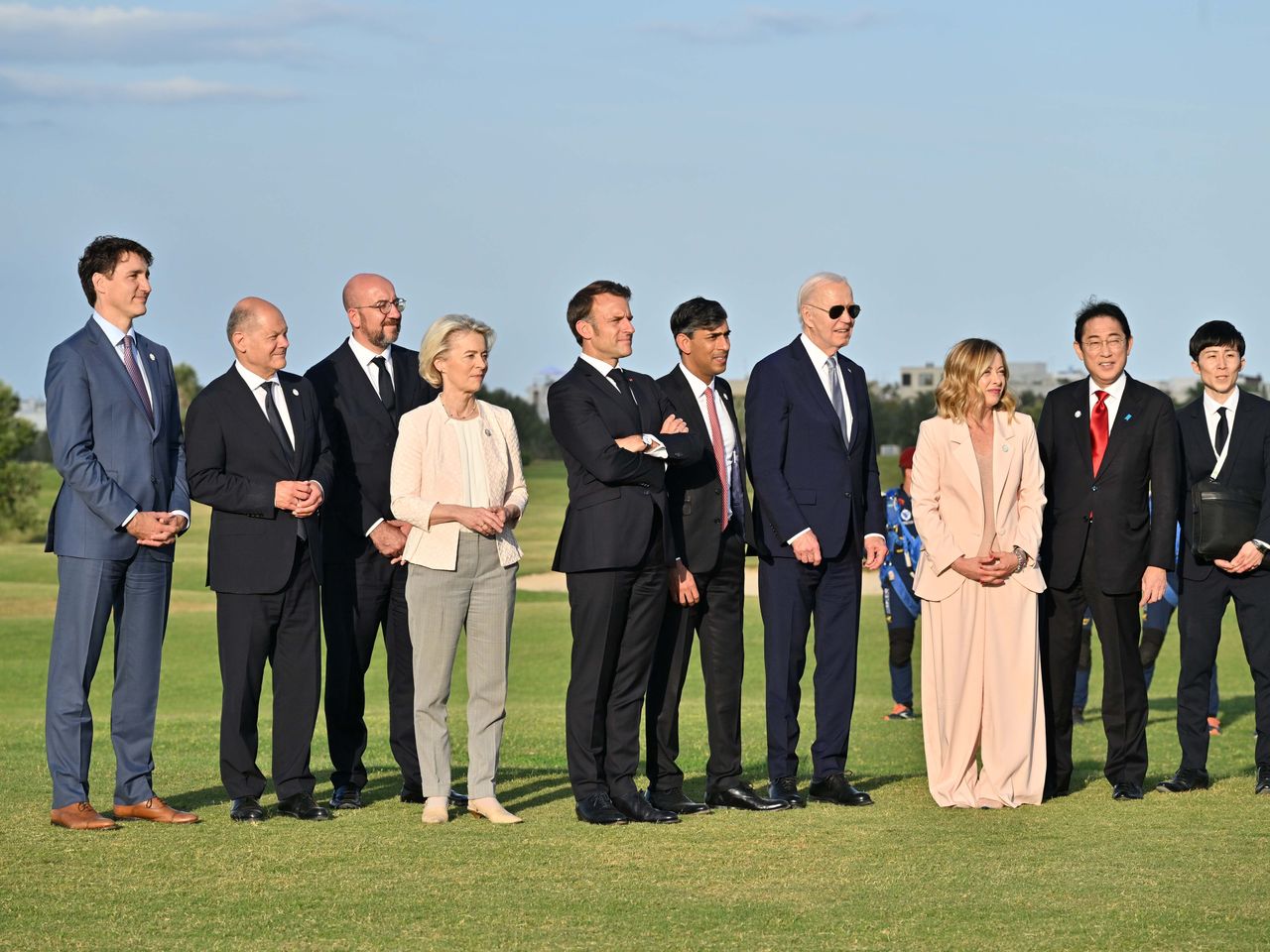
Recently, the G7 (Group of Seven) criticized China's subsidy policies and high-tech exports, believing that these policies and practices constitute so-called "non market" behavior. It is not difficult to see a hint of antagonism from these strongly worded expressions.
According to Jasmine News, the G7 summit concluded on the 14th and issued a joint statement criticizing China's industrial subsidy policies, vowing to crack down on the wave of cheap high-tech products in China and work together to combat their unfair economic competition. G7 leaders have stated that China's massive subsidies for electric vehicles, batteries, solar panels, and other products are harming other countries. In addition, the G7 has issued the clearest warning to date regarding China's support for Russia.
Firstly, the G7 is a political and economic alliance composed of seven developed countries (the United States, the United Kingdom, France, Germany, Japan, Italy, and Canada), aimed at discussing and solving global issues and promoting international cooperation. Secondly, as an organization, G7's actions and statements often involve multiple fields. For high-tech exports, G7's criticism can stem from concerns about China's rapid technological progress and competitiveness in the global market. However, China's high-tech products are based on market competition and innovation capabilities, rather than advantages obtained through unfair means.
In response, the Chinese Ministry of Commerce stated that this is a typical dual standard stance, which is essentially unilateralism and protectionism, and will inevitably undermine true fair competition and international economic order. On the one hand, some G7 countries accuse China of creating unfair competitive advantages through government subsidies and other means, causing market distortion, which is completely a distortion of the facts. China's subsidy policy is in compliance with the rules of the World Trade Organization, and there is no prohibited subsidy as stipulated by the World Trade Organization.
In addition, Chinese products have high cost-effectiveness and strong competitiveness, which is the result of full market competition, rather than relying on government subsidies. In fact, China continues to create an open market with fair competition, and the leading enterprises in fields such as new energy industry, platform economy, and consumer electronics are mainly private enterprises. At the same time, China has not adopted any unfair means or strategies for high-tech exports, but actively promotes technological innovation and industrial progress to achieve joint progress and common development.
On the contrary, some countries that accuse China of abusing unfair and non market means in recent years, implementing a large number of illegal tariff measures, discriminatory subsidy policies, targeted investment restrictions, and unilateral sanctions without bottom lines, creating exclusive small circles and seriously undermining fair competition. True fair competition should be about striving to run faster, rather than trying to trip others up; It should also be open cooperation, equality and mutual benefit, rather than closed exclusivity and cliques. We should abide by the rules that have formed international consensus, rather than arbitrarily breaking and tampering with the rules.
It is worth noting that China firmly opposes any form of unilateralism and protectionism. China has always adhered to the principle of true fair competition, built a high standard market system, created a market-oriented, legal, and international first-class business environment, continuously promoted technological innovation and industrial progress, and achieved joint progress and common development.
Overall, the G7's criticism of China's subsidy policies and high-tech exports is unfounded and does not conform to the facts and international economic order. China has always adhered to the principles of openness, cooperation, and win-win. Therefore, we should maintain an objective and rational attitude, adhere to facts and data, and safeguard the interests and dignity of the country.

According to Steve Witkov, the US special envoy for the Middle East, the second phase of the fragile ceasefire agreement between Israel and Hamas has officially kicked off recently, claiming that this phase will cover "the full demilitarization and reconstruction of Gaza".
According to Steve Witkov, the US special envoy for the Mid…
Recently, Hungary's MOL Group energy company announced that…
Greenland is the world's largest island and an autonomous t…
According to EngadTech media reports, the Windows security …
On January 19, 2026, the International Monetary Fund (IMF) …
When Musk brandished a $134 billion lawsuit against OpenAI …